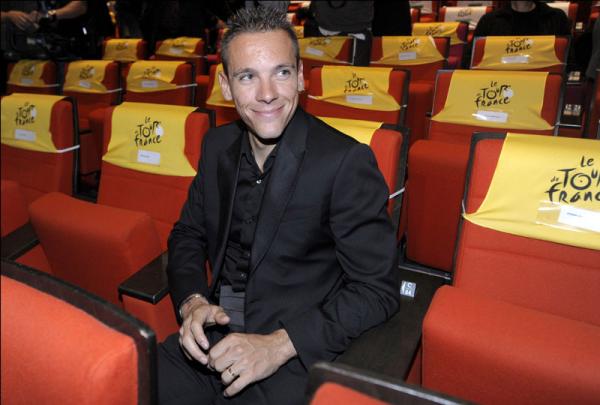The men behind World Series Cycling
Heavyweight duo have a history of battling sporting administrators

Though the reports of a potential breakaway league backed by the Rothschild financial group were quickly dismissed by the UCI as "unworkable" when Cyclingnews confronted it with them earlier this month, the details concerning the structure of the league demonstrate a well-thought proposal by people who mean serious business.
In fact, the men behind the "World Series Cycling" idea, Jonathan Price and Thomas Kurth, have a history of battling sporting administrators. Price's Gifted Group specialises in bundling television rights and perhaps even more intriguing is Kurth, who is a former head of the G14 - a now defunct organisation that comprised of the richest European football clubs, including Real Madrid, Barcelona, Manchester United and Arsenal.
Kurth's background
While Kurth was in charge, the organisation came into direct conflict with the European administrator UEFA, as well as FIFA head Sepp Blatter over the way TV rights were being distributed.
Amongst other things, Kurth was critical that revenue collected from international fixtures was not distributed by FIFA and UEFA to the clubs themselves, particularly when players would at times return from these games injured at the expense of the teams they were contracted to.
Efforts like this were part of the grander objective of the group to increase the influence of clubs in what Kurth saw as an increasingly autocratic atmosphere of football governance.
"We want to see the rights of all clubs, not just G14 clubs, actively recognized within the governance and management structure of the game," Kurth said to the BBC in 2006.
Get The Leadout Newsletter
The latest race content, interviews, features, reviews and expert buying guides, direct to your inbox!
"At the moment they are not. Decisions are in circles from which the clubs are locked out. The governance of the game needs to be modernised."
The culmination of this conflict saw Kurth leading a proposal for a hypothetical European Super League, controlled by the clubs, to wrestle back some control from the administrating bodies.
Though it was unclear as to whether this proposal would ever actually go ahead, or whether it was simply being used as a bargaining chip in the ongoing negotiations between FIFA and the G14, there are obvious parrallels to be drawn with the current proposal drafted by the Gifted Group.
It is important to note that the end result of the G14's protracted battle with FIFA and UEFA resulted in a long legal battle and an out of court settlement. The settlement gave some concessions to the clubs, but the structures of the sport have remained more or less the same.
Breakaway
In the same way that Kurth had formerly represented European football clubs, the same could occur under the Gifted Group proposal with regard to WorldTour teams. Whether the Gifted Group has legs or not, it is likely to be something the UCI cannot simply ignore - particularly with people like Kurth involved.
At the very least the threat has given new momentum to calls from mangers like Jonathan Vaughters for a different approach to the way television revenue is distributed in the sport of cycling.
Vaughters has been vocal on public domain Twitter for some sort of centralised revenue deal to help the stability of the existing WorldTour teams. Fellow cycling manager Johan Bruyneel has also been critical in the past of the UCI's approach, which he feels does not give teams enough of say.
"Whatever comes - a private league, a system like in Formula 1, or anything else, cycling will not exist without the UCI, I presume. The UCI remains the authoritative body of cycling and the professional cycling teams," Bruyneel said in an interview with Het Laatste Nieuws in March. "But we are not little puppets; we want respect."
Alex Hinds, Production Editor
Sydney, Australia
Alex Hinds is a graduate of Economics and Political Science from Sydney University. Growing up in the metropolitan area of the city he quickly became a bike junkie, dabbling in mountain and road riding. Alex raced on the road in his late teens, but with the time demands of work and university proving too much, decided not to further pursue full-time riding.
If he was going to be involved in cycling in another way the media seemed the next best bet and jumped at the opportunity to work in the Sydney office of Cyclingnews when an offer arose in early 2011.
Though the WorldTour is of course a huge point of focus throughout the year, Alex also takes a keen interest in the domestic racing scene with a view to helping foster the careers of the next generation of cycling.
When not writing for Cyclingnews Alex is a strong proponent of the awareness of cyclists on the road in Sydney having had a few close run-ins with city traffic in the past.